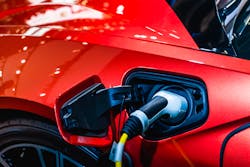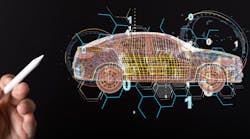On April 14, a group of public interest organizations released a letter in support of direct sale and service for electric vehicles (EVs). This letter was signed on to by a variety of national and state organizations, including U.S. PIRG Affiliates, public policy research organization R-group, the Electric Auto Association, the Consumer Federation of America, and many more. In the letter, this coalition argued that, by restricting an electric vehicle manufacturer’s ability to directly sell their product to consumers, states are unfairly manipulating the market and slowing the advance of electric vehicles into the mainstream.
The issue of direct sale in the automobile market gained national prominence about 10 years ago, when electric vehicle startup Tesla Motors made a decision that their vehicles would not be sold in a traditional dealership model. Since then, Tesla and other electric vehicle companies have attempted to operate through a patchwork of state laws and regulations that prohibit manufacturers of automobiles from selling directly to a consumer.
Currently, 22 states allow direct sale for all car manufacturers, and 11 states make specific exceptions that allow only Tesla to sell their vehicles directly. In this legislative year, Connecticut, Georgia, Nebraska, Nevada, New York, and Washington are all considering legislation to allow direct sale of vehicles. In some of these states, new electric vehicle companies such as Rivian and Lucid are seeking the same type of exception that allows Tesla to sell their vehicles. In others, states are considering opening a vehicle direct sale channel for the first time.
The ability for companies such as Tesla, Lucid, and Rivian to sell their vehicles directly to the public could signal a shift in the overall makeup of vehicles on the market. In 2019, a study by the nonprofit Sierra Club found that 74 percent of auto dealerships around the country do not stock electric vehicles at all. Additionally, this study found that if the dealership did sell electric vehicles, the salespeople were not particularly knowledgeable with user insights or information about the vehicle.
This lack of user education is one of the main reasons that Tesla Motors opted to pursue the direct sale route. Since the user experience of an electric vehicle is different in many ways than a traditional internal combustion engine vehicle, Tesla, and other electric vehicle companies, believe that there is more up-front training necessary for a first-time EV buyer. Having sales of Tesla occur exclusively at Tesla storefronts or online allows for a cohesive educational buying experience.
It is not just electric vehicle companies that are reconsidering the way that their vehicles are sold. Earlier this year, Volvo Cars announced that their new electric vehicle models will be sold exclusively online. Volvo plans to maintain their relationships with dealerships; however, their dealerships will mostly be used for test-driving and servicing purposes, not sales. Similarly, Chief EV Officer Travis Hester stated that GM will be investing heavily in their online marketing and sales channels. This comes after the General Motors announcement of a $27 billion investment in electric vehicle research and manufacturing, as well as plans to be exclusively selling electric vehicles by 2035.
This recent push for the direct sale of automobiles is just one sign of the impending market shift toward electric vehicles. Earlier this month, President Joe Biden released his $2.3 trillion infrastructure package proposal. Within that proposal is $174 billion directed to promote electric vehicles and electric vehicle charging stations. This includes the goal of 500,000 new electric vehicle charging stations in the United States by the year 2030.
This proposal, if it passes, will represent a huge investment in new vehicle technologies and bringing electric vehicles into the mainstream. Currently, electric vehicles represent only about three percent of the market share, but that number is consistently rising year over year. Direct sale legislation, increased electric vehicle research and manufacturing, and federal investment into electric vehicle technologies and infrastructure all represent the rapidly changing automobile industry landscape and the shift the industry is experiencing away from internal combustion engines to an increasingly electric transportation world.


